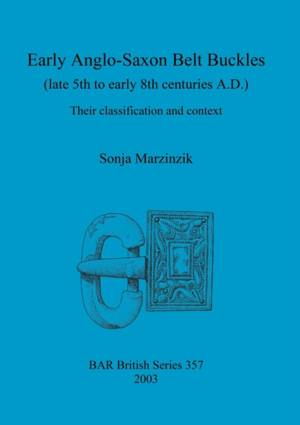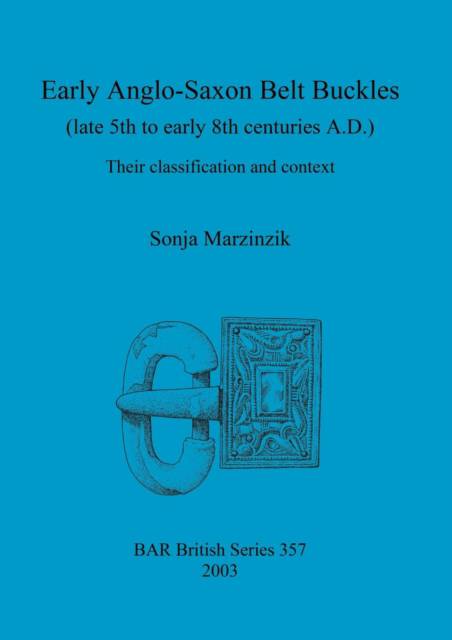
- Retrait gratuit dans votre magasin Club
- 7.000.000 titres dans notre catalogue
- Payer en toute sécurité
- Toujours un magasin près de chez vous
- Retrait gratuit dans votre magasin Club
- 7.000.000 titres dans notre catalogue
- Payer en toute sécurité
- Toujours un magasin près de chez vous
Early Anglo-Saxon Belt Buckles (late 5th to early 8th centuries A.D.)
Their classification and context
Sonja MarzinzikDescription
Belt buckles have long been recognised as an integral part of the costume of early medieval men and women. As items of dress, buckles and belt suites were subject to regional diversity as well as changes in fashion. This makes them especially valuable for the investigation of typological and chronological variation, particularly as belt sets which were imported into Anglo-Saxon England from the Continent provide a strong link to the coin-based chronologies there. As coin-dated graves are largely absent from Anglo-Saxon England until the seventh century, belt buckles offer the potential to refine the chronology for Anglo-Saxon artefacts in general. This work investigates the classification and development as well as social significance of Anglo-Saxon beltbuckles from the late fifth to the early eighth centuries. The book explores the non-utilitarian significance that objects can have in general and the way different classes of dress accessories were used in Anglo-Saxon society in particular, to create and maintain social relations. A chapter reviews the literature on belt buckles. This includes the most important articles on late Roman belt equipment and covers British as well as Continental publications. The core of this book is a typology for early Anglo-Saxon belt buckles. Buckles without plate and with plate are allocated to 40 Types and Typegroups, which have 37 sub-Type(group)s, some of which are further subdivided into variants. Each Type or Typegroup is examined with regard to its characteristics, chronology and comparative pieces. A consideration of costume follows, including the evidence for leather belts and clothing and introduces contemporary depictions of belts and buckles. Also included are analyses of the modes of production and distribution of early Anglo-Saxon buckles, assessing the cultural connections with Roman Britain, Merovingian France, Byzantium and the Mediterranean, and Scandinavia reflected in these buckles.
Spécifications
Parties prenantes
- Auteur(s) :
- Editeur:
Contenu
- Nombre de pages :
- 483
- Langue:
- Anglais
- Collection :
- Tome:
- n° 357
Caractéristiques
- EAN:
- 9781841715445
- Date de parution :
- 31-12-03
- Format:
- Livre broché
- Format numérique:
- Trade paperback (VS)
- Dimensions :
- 211 mm x 296 mm
- Poids :
- 1669 g







